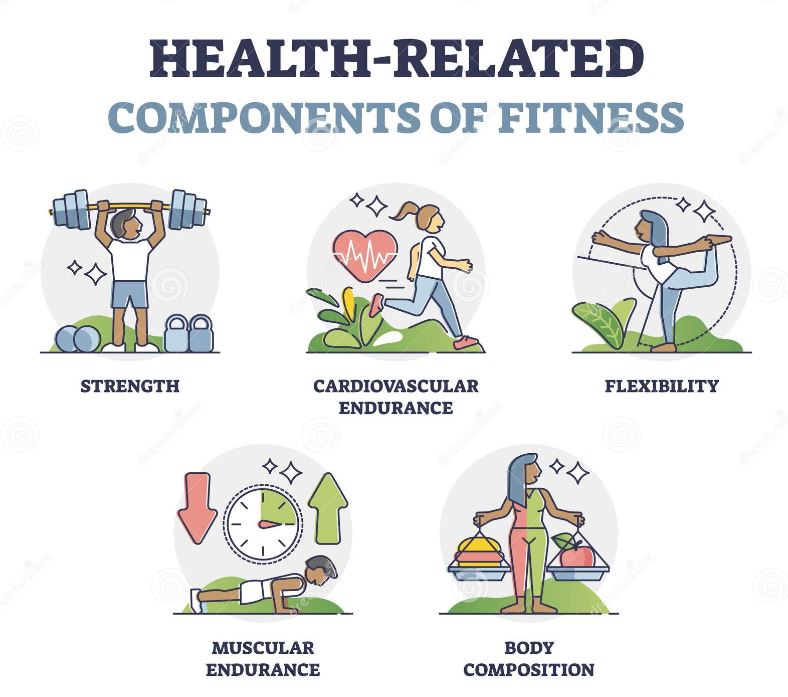Weight loss is a journey often marked by unexpected challenges, and one common phenomenon that leaves many people frustrated is gaining weight before losing it. If you’ve ever started a new diet or exercise plan only to see the scale creep up before dropping, you’re not alone. This temporary weight gain can seem discouraging, but it’s actually a normal part of the process. Let’s dive deeper into why this happens, and how understanding the science behind it can keep you on track.
The Science Behind Weight Gain Before Loss
Before we get into the various reasons behind weight gain before losing it, it’s essential to understand that weight fluctuations are completely normal. Daily variations in water balance, food intake, and even hormone levels can cause changes in your weight. However, this short-term gain often leads to long-term success if you remain consistent.
Key Takeaway:
Temporary weight gain is often a sign that your body is responding to new routines, whether it’s exercise, diet changes, or stress management.
Temporary Water Retention
One of the most common reasons people experience weight gain before they start losing weight is water retention. When you make sudden changes to your diet or exercise routine, your body holds onto water, causing an increase on the scale.
How Water Retention Occurs:
- Carbohydrate Intake: When you consume carbohydrates, your body stores them as glycogen. For every gram of glycogen stored, your body holds approximately 3-4 grams of water. This can lead to a temporary increase in weight, especially if you’ve just begun a high-carb diet or reintroduced carbs after a low-carb phase.
- Sodium Consumption: Salt or sodium causes your body to retain water. If your diet is high in salty foods, you may notice a sudden uptick in your weight, which will drop once your sodium levels stabilize.
- Exercise-Induced Inflammation: After a vigorous workout, your muscles experience micro-tears, which is part of the process of building muscle. This can cause inflammation and water retention, temporarily increasing your weight.
Pro Tip:
Drink plenty of water! It may seem counterintuitive, but drinking more water helps your body flush out excess sodium and reduce water retention.
Glycogen and Carbohydrate Storage
When starting a new exercise regime or diet, especially one that includes a reintroduction of carbohydrates, your body’s glycogen stores will fill up quickly. Since glycogen holds water, this is a key reason why you may initially gain weight before losing it.
What Happens in Your Body:
- Glycogen Storage: Your body stores carbohydrates as glycogen, primarily in your liver and muscles.
- Water Retention: For every gram of glycogen, 3-4 grams of water are stored. This accounts for most of the initial gain.
Building Muscle: The Role of Muscle Mass
Another reason for the scale going up when you’re trying to lose weight could be that you’re building muscle. Muscle is denser than fat, which means it weighs more but takes up less space. So, while your weight may increase slightly, you could actually be losing fat and gaining muscle.
Why Muscle Gain is Beneficial:
- Increased Metabolism: Muscle burns more calories than fat, even at rest. This means that as you build muscle, your metabolism increases, helping you burn more fat in the long run.
- Better Body Composition: Even if the scale shows a slight gain, your clothes may fit better, and you’ll likely notice a more toned appearance.
Key Insight:
Don’t rely solely on the scale. Use other metrics such as body measurements or how your clothes fit to track progress.
Changes in Metabolism
When you start dieting or exercising, your body’s metabolism goes through several changes. Initially, you may experience a spike in cortisol, the body’s stress hormone, as it adapts to these changes. Cortisol can cause your body to retain water, which might reflect as weight gain.
Moreover, your body may enter a metabolic adaptation phase where it tries to preserve energy by slowing down metabolism in response to calorie restriction. This can lead to temporary weight gain or a plateau.
How to Support Your Metabolism:
- Eat enough calories: Too much restriction can cause your metabolism to slow down, so ensure you’re consuming a balanced number of calories to fuel your workouts.
- Incorporate strength training: Lifting weights or resistance training helps boost your metabolism by building muscle mass.
Hormonal Fluctuations
Hormones play a significant role in weight fluctuations, especially for women. Estrogen, progesterone, and cortisol can all influence body weight, particularly around menstrual cycles.
Hormonal Weight Gain Factors:
- Menstrual Cycle: Many women experience bloating and water retention before and during their period due to hormonal changes, which can lead to temporary weight gain.
- Cortisol: High levels of cortisol, the stress hormone, can lead to increased fat storage, particularly around the abdomen.
Pro Tip:
If you suspect hormonal changes are behind your weight fluctuations, tracking your cycle can help you differentiate between temporary water retention and true fat gain.
Dietary Factors: Sodium, Carbohydrates, and Fiber
What you eat can significantly impact your short-term weight. Sodium, carbohydrates, and fiber all play roles in temporary weight gain.
Sodium:
As mentioned earlier, high sodium intake can lead to water retention. If you’ve recently eaten a salty meal, your weight could spike temporarily until your body processes the excess salt.
Carbohydrates:
Carbs hold onto water, so increasing your carb intake can cause weight gain. This is particularly noticeable when you go from a low-carb diet to one that includes more carbs.
Fiber:
Fiber-rich foods are excellent for your digestive health, but they can also cause bloating and temporary weight gain as they add bulk to your digestive system.
Tip:
Don’t cut these essential nutrients! Instead, focus on whole foods and be mindful of portion sizes to minimize water retention.
The Role of Fiber in Digestion and Weight
While fiber is an important part of a healthy diet, it can sometimes contribute to short-term weight gain. Soluble fiber absorbs water and can add to temporary weight increases as it passes through your digestive system.
Benefits of Fiber:
- Improved Digestion: Fiber helps maintain regularity and supports gut health.
- Feeling Full Longer: A high-fiber diet keeps you feeling full, which can aid in long-term weight loss.
The Impact of Stress on Weight Gain
Stress is a silent saboteur when it comes to weight management. Chronic stress elevates cortisol levels, which can lead to weight gain, especially around the midsection. Stress can also cause emotional eating, leading to an increase in calorie consumption without realizing it.
Managing Stress:
- Mindfulness and meditation can help reduce cortisol levels.
- Regular exercise is also a great way to manage stress while supporting your weight loss journey.
- Prioritize sleep, as lack of rest can elevate stress hormones and promote weight gain.
The Effects of Inflammation on Weight Gain
After intense physical activity, your muscles experience inflammation as part of the repair process. This inflammation often leads to water retention, contributing to the temporary increase on the scale.
How to Reduce Inflammation:
- Rest and Recovery: Allow your body enough time to recover between workouts.
- Anti-inflammatory Foods: Include foods rich in antioxidants like berries, leafy greens, and omega-3 fatty acids.
Strategies to Stay Positive During Temporary Weight Gain
It’s easy to feel frustrated when you see the scale go up, but remember, short-term weight gain is normal and often part of the bigger picture of long-term success.
Strategies for Staying on Track:
- Track non-scale victories: Focus on improvements in energy levels, fitness performance, or how your clothes fit.
- Avoid daily weigh-ins: Weigh yourself once a week, at the same time of day, to get a more accurate picture of your progress.
- Celebrate small wins: Every step you take towards a healthier lifestyle is progress, even if the scale doesn’t reflect it immediately.
The Importance of Hydration
Staying hydrated is crucial for managing water retention and supporting your weight loss journey. Dehydration can actually cause your body to hold onto water, leading to temporary bloating and weight gain.
Hydration Tips:
- Drink at least 8 glasses of water per day.
- Avoid sugary beverages, which can lead to additional calorie intake.
Busting Common Weight Gain Myths
Myth 1: You’re Gaining Fat
Temporary weight gain doesn’t necessarily mean fat gain. Often, it’s due to water retention, muscle gain, or digestive factors.
Myth 2: Weight Gain Means Failure
Many people associate any weight gain with failure, but this isn’t true. Fluctuations are normal, and progress isn’t always linear
Continuing from where we left off:
Myth 3: More Exercise Will Fix It
While exercise is essential, over-exercising can increase cortisol levels and lead to further water retention. Balance is key, and rest days are crucial for recovery and weight loss progress.
Long-Term Weight Loss Success
Weight loss is a long-term journey. Temporary weight gain doesn’t signal failure but is often a stepping stone toward achieving lasting success. It’s vital to understand the body’s natural responses and continue focusing on sustainable habits.
Sustainable Habits for Long-Term Success:
- Balanced Diet: Stick to whole, nutrient-dense foods while maintaining a healthy calorie deficit.
- Exercise Consistently: A combination of cardio and strength training will help burn fat while building muscle.
- Manage Stress: Incorporate relaxation techniques such as mindfulness, yoga, or deep-breathing exercises to reduce stress.
- Stay Hydrated: Drinking enough water is key to avoiding water retention and promoting overall well-being.
Conclusion
In summary, gaining weight before losing it is a completely normal and expected part of the weight loss process. The body undergoes various physiological changes when you start a new diet or exercise routine, including water retention, muscle growth, and metabolism shifts, all of which can cause temporary weight gain. By staying consistent, focusing on non-scale victories, and adopting long-term, sustainable habits, you will achieve your weight loss goals.
The number on the scale is just one measure of progress, and the true success comes from feeling stronger, more energized, and confident in your body. So don’t be discouraged by a temporary gain — keep pushing forward, and the results will come!





I was struggling with this issue since long , guess what i have missed some really basic stuff related to this issue , thanks for highlighting those issues and helping out people like me.
Glad that it helped you !